
Modupipe - An enrichment project for Primates
31 March 2019
What is Enrichment?
By definition, enrichment is a key husbandry principle that seeks to enhance the quality of animal care, whether in zoos, sanctuaries or any other similar facility. Enrichment is typically offered as an element of rehabilitation, and it provides integral environmental stimuli necessary for both the mental and physical well-being of an animal. Enrichment can include an array of activities, from sensory stimuli and social interaction, to puzzles and manipulation exercises (in which the animal can use its hands, paws or feet to solve obstacles, or break open items to obtain the reward inside.) The idea is, with rewards at the end, the animal will be encouraged to carry out these enrichment activities and, in turn, make advancements in not only their health, but in their relationship with their environment.
Tool-Use of Primates
A tool-using performance in an animal is specified as the use of an external object as a functional extension of mouth or beak, hand or claw, in the attainment of an immediate goal. This goal may be related to the obtaining of food, care of the body, or repulsion of a predator, intruder. If the object is used successfully, then the animal achieves a goal in which a number of instances would not have been possible without the aid of the tool. A variety of primates such as Orang-Utans, Gorillas, Chimpanzees, Bonobos or Macaques show behavior closely related to tool-using. Tool-using behavior in primates falls into two distinct categories: the use of objects as weapons in aggressive contexts; and in non-agonistic contexts for obtaining food for investigation and body care. ModuPipe makes use of these behaviors challenging primates to perform tool-use behaviors, observed in the wild as well as in zoo settings, in oder to receive a reward in form of a snack.

ModuPipe - a modular Snack Pipe
Modupipe is a modular screw system of differently shaped thermoplastic tubes designed to feed primates. The tubes are made out of low-density Polyethylene (LDPE), a very light, inexpensive and highly resistant material, made from the monomer ethylene. The different modules can be joined together to form individual tubes of different shapes and lengths and can be freelyand three-dimensionally distributed in the enclosure. In addition to the tubes, the set consists of thin wooden sticks, wooden boards and one or more feeding bowls. The basic idea is to move the bowl through the tubes using a wooden rod and boards until the bowl reaches the end of the tube.
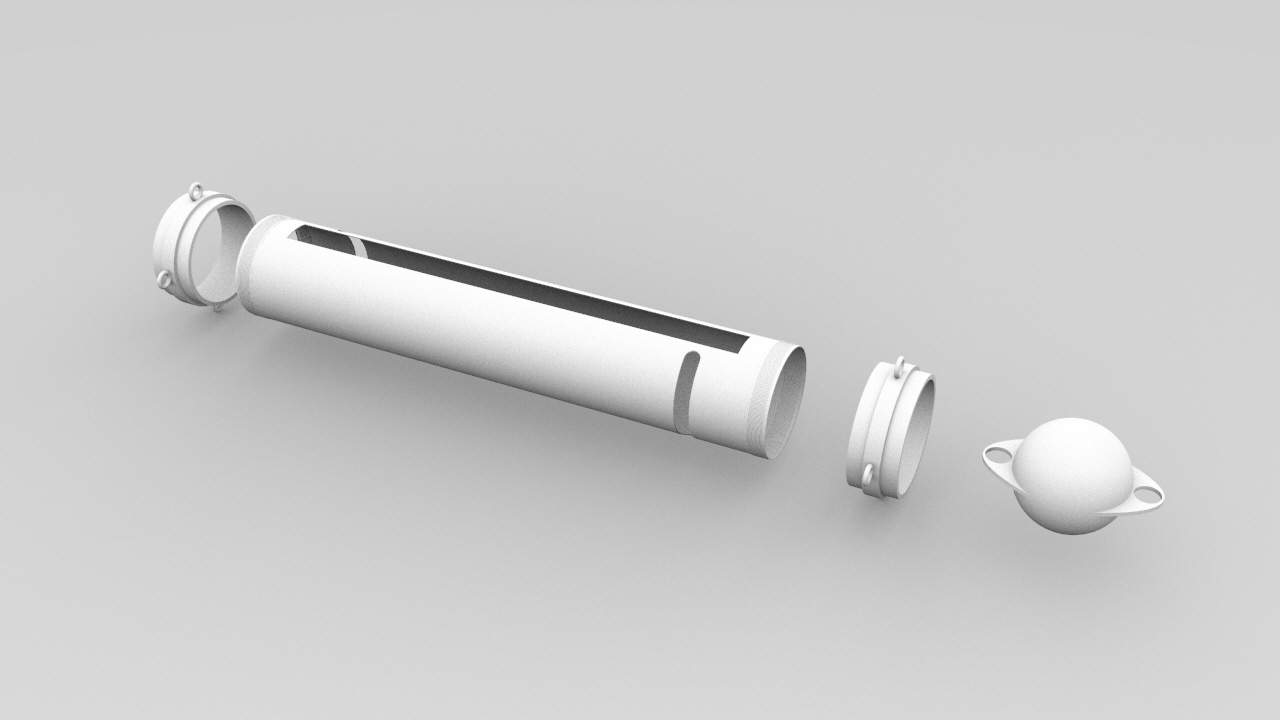
Interaction
Each tube module has a vertical slot and two horizontal slots, respectively, adapted to the moulding line. The wooden rod is passed through the vertical slot and inserted into a ring attached to the feeding tray. Now the feeding tray can be moved through the tube following the slot line. To secure the tray and prevent it from returning to its previous position, the boards can be inserted into the horizontal slots. The tray is now secured and the user can proceed to the next module - until the tray reaches the end of the pipe system and its contents can be eaten.
The advantage of using low-density Polyethylene for the tubes is that they are very cheap industrial products, available in large numbers and around the world. In addition, it is a very light material, which ensures universal applicability (the tubes can easily be suspended) and reduces the risk of injury. The material also makes it possible to modify the system and to introduce different levels of difficulty in order to constantly present users with new challenges. ModuPipe can easily be applied to enclosures of many primate species, like Orang-Utans, Gorillas, Chimpanzees, Bonobos or Macaques.
Prototype TWO

The Prototype shows a potential composition of a ModuPipe set up in a zoo enclosure. It consists of different modules: Straight ones, ones that are bend by 45 degrees and other bend by 90 degrees, as well as the Connector module that sits between each pipe and allows the system to be hung in the enclosure - see detailed view of the connector. This concept is highly customizable, allowing different set-ups that can react to every possible environement.
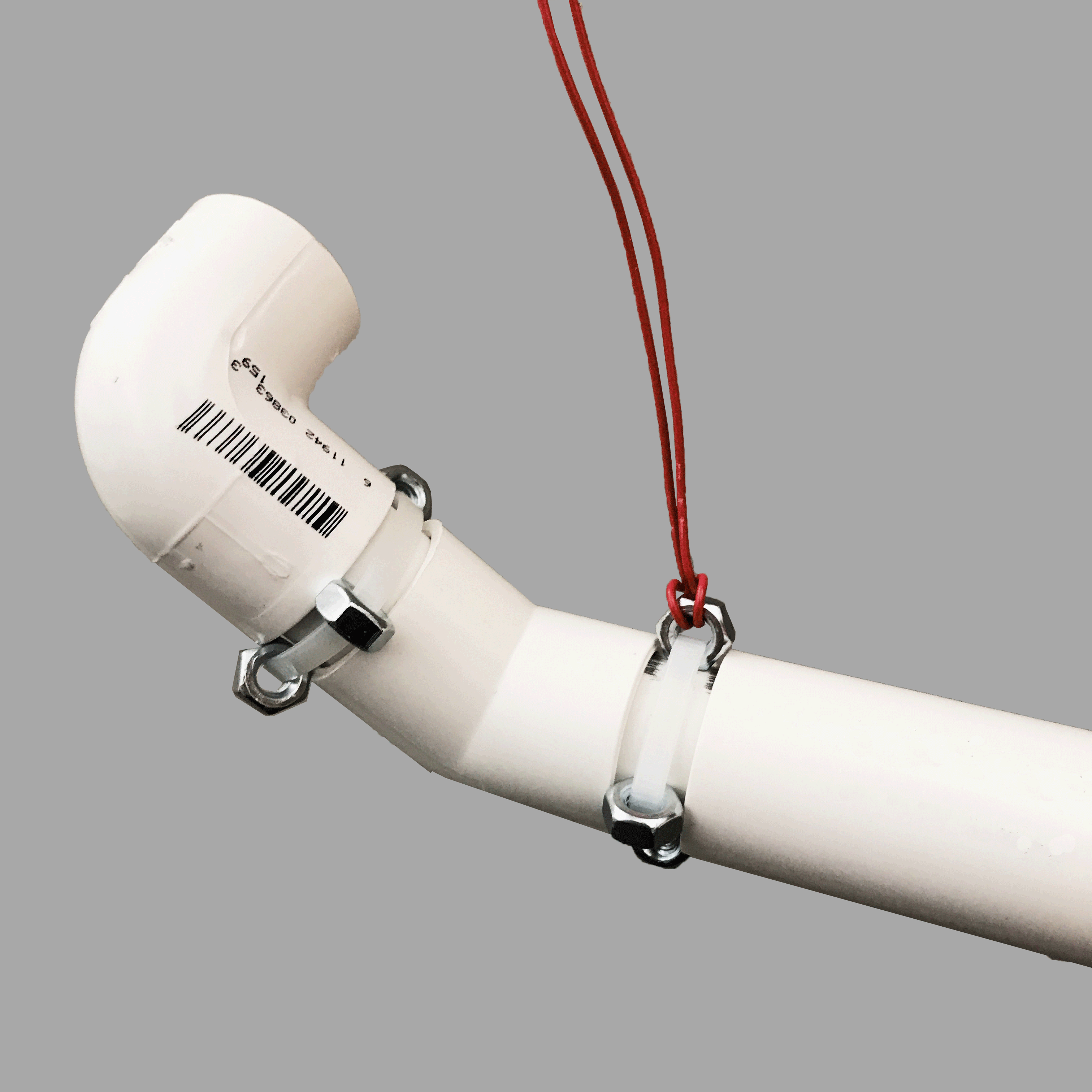
Prototype ONE - Bodystorm
Prototype ONE
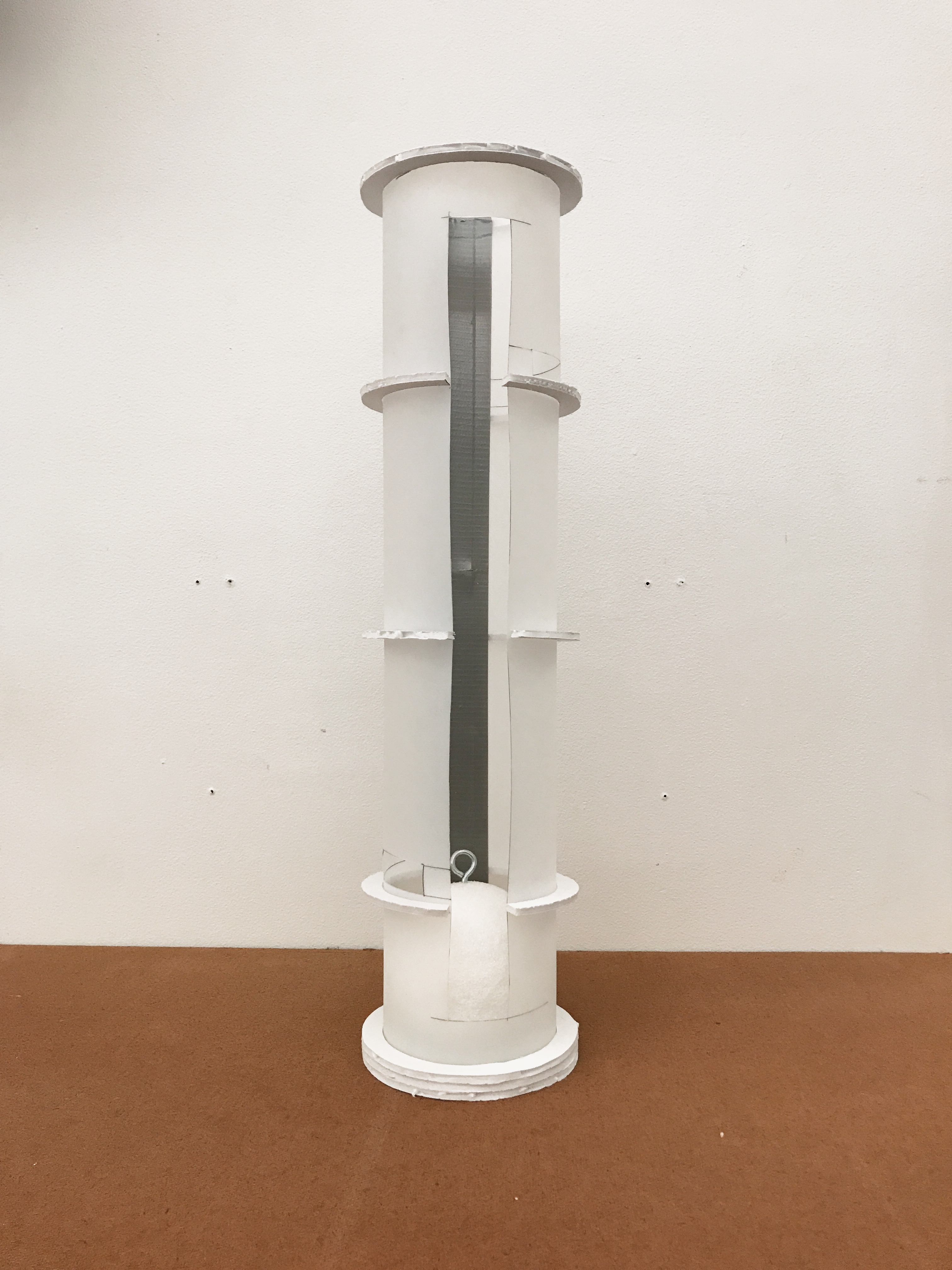
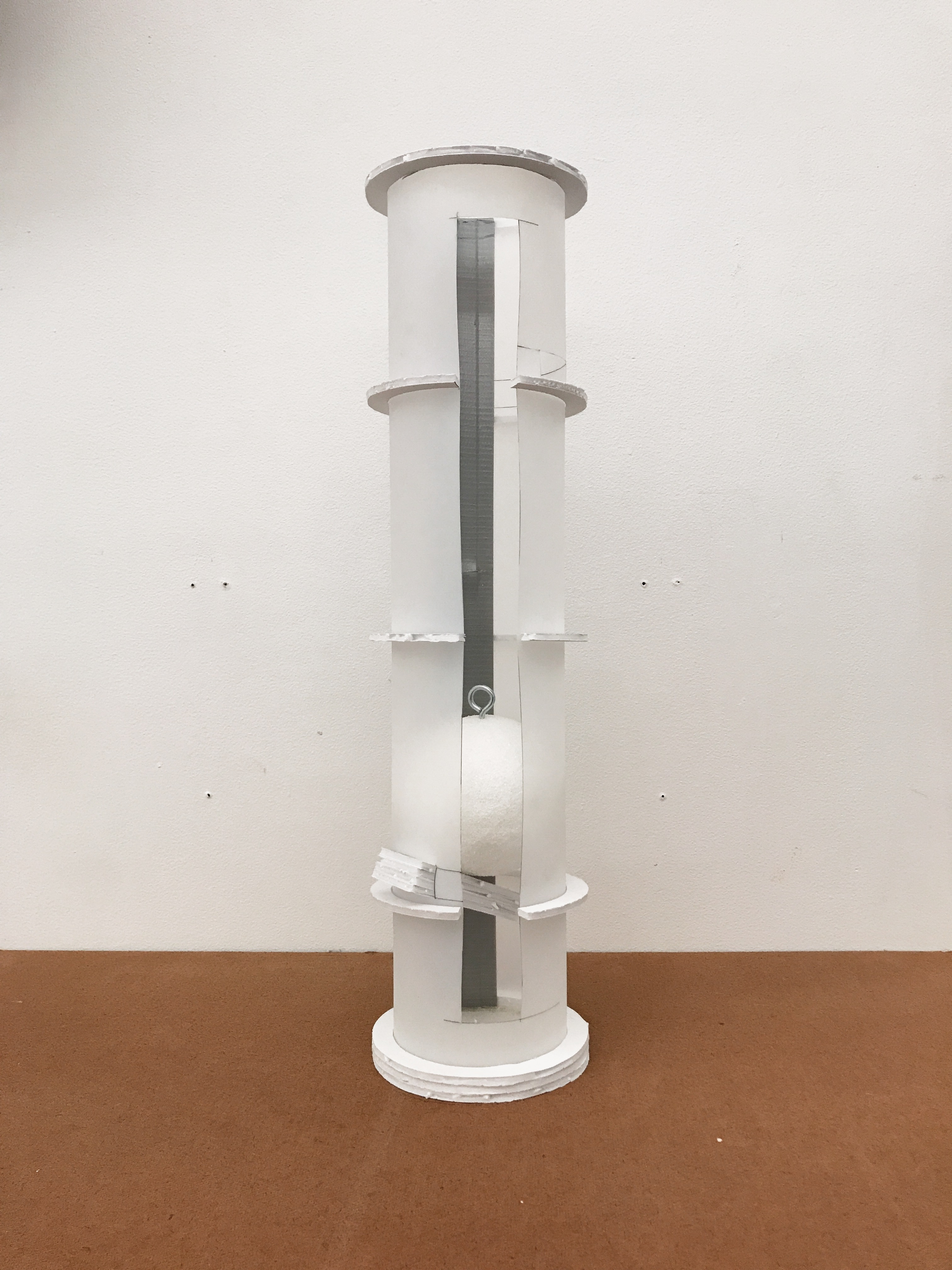
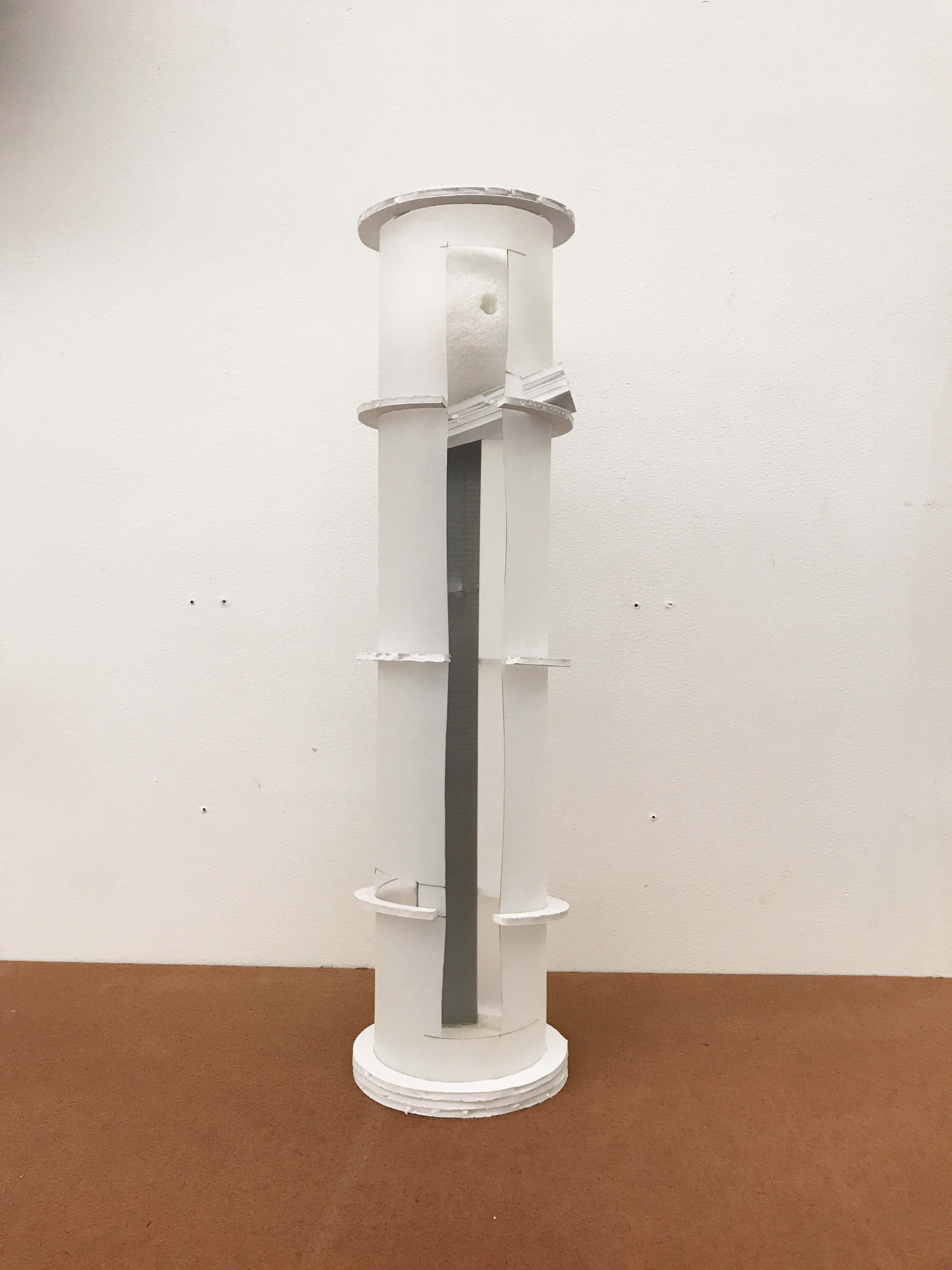
Ressources
- Van Lawick-Godall, J. 1971. "Tool-Using in Primates and Other Vertebrates", Kigoma, Tanzania
- Köhler, W. 1925. “The Mentality of Apes.” Harcourt, Brace, New York.
- Napier, J. R. 1960. "Studies of the hands of living primates." Proc. Zool. SOL, London
- Boulenger, E. G. 1937. "Apesand Monkeys." McBride, New York.
- Harrisson, B. 1962. "Orang-utan." Collins, London.